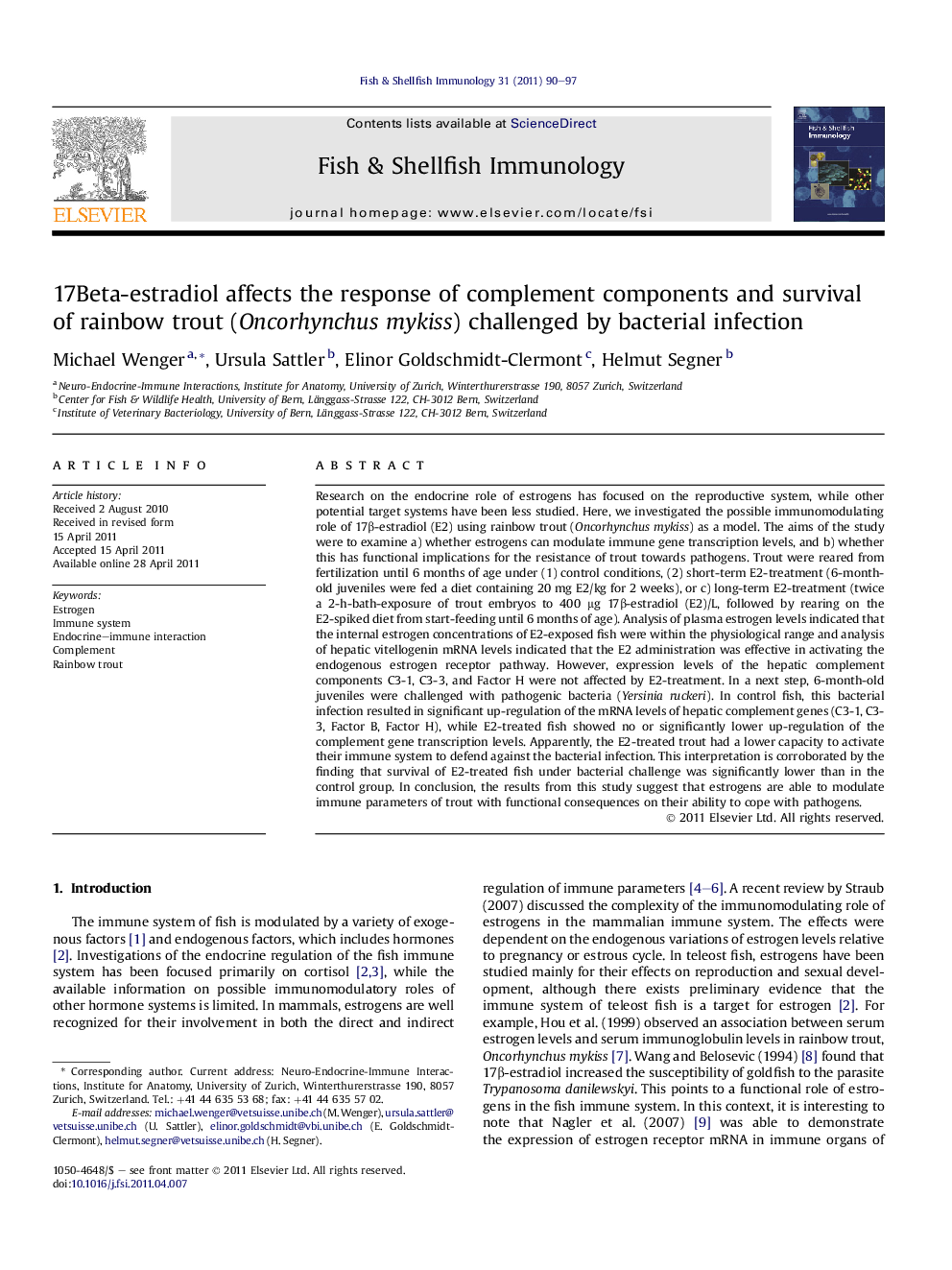| کد مقاله | کد نشریه | سال انتشار | مقاله انگلیسی | نسخه تمام متن |
|---|---|---|---|---|
| 2432210 | 1106786 | 2011 | 8 صفحه PDF | دانلود رایگان |

Research on the endocrine role of estrogens has focused on the reproductive system, while other potential target systems have been less studied. Here, we investigated the possible immunomodulating role of 17β-estradiol (E2) using rainbow trout (Oncorhynchus mykiss) as a model. The aims of the study were to examine a) whether estrogens can modulate immune gene transcription levels, and b) whether this has functional implications for the resistance of trout towards pathogens. Trout were reared from fertilization until 6 months of age under (1) control conditions, (2) short-term E2-treatment (6-month-old juveniles were fed a diet containing 20 mg E2/kg for 2 weeks), or c) long-term E2-treatment (twice a 2-h-bath-exposure of trout embryos to 400 μg 17β-estradiol (E2)/L, followed by rearing on the E2-spiked diet from start-feeding until 6 months of age). Analysis of plasma estrogen levels indicated that the internal estrogen concentrations of E2-exposed fish were within the physiological range and analysis of hepatic vitellogenin mRNA levels indicated that the E2 administration was effective in activating the endogenous estrogen receptor pathway. However, expression levels of the hepatic complement components C3-1, C3-3, and Factor H were not affected by E2-treatment. In a next step, 6-month-old juveniles were challenged with pathogenic bacteria (Yersinia ruckeri). In control fish, this bacterial infection resulted in significant up-regulation of the mRNA levels of hepatic complement genes (C3-1, C3-3, Factor B, Factor H), while E2-treated fish showed no or significantly lower up-regulation of the complement gene transcription levels. Apparently, the E2-treated trout had a lower capacity to activate their immune system to defend against the bacterial infection. This interpretation is corroborated by the finding that survival of E2-treated fish under bacterial challenge was significantly lower than in the control group. In conclusion, the results from this study suggest that estrogens are able to modulate immune parameters of trout with functional consequences on their ability to cope with pathogens.
► We assess the modulation ability of estrogen (E2) on the complement system of fish.
► Fish are first exposed to E2 for different durations, then infected with bacteria.
► E2-exposure affects complement gene transcription levels independent of duration.
► E2-exposure significantly decreases the survival rate of bacteria-infected fish.
Journal: Fish & Shellfish Immunology - Volume 31, Issue 1, July 2011, Pages 90–97